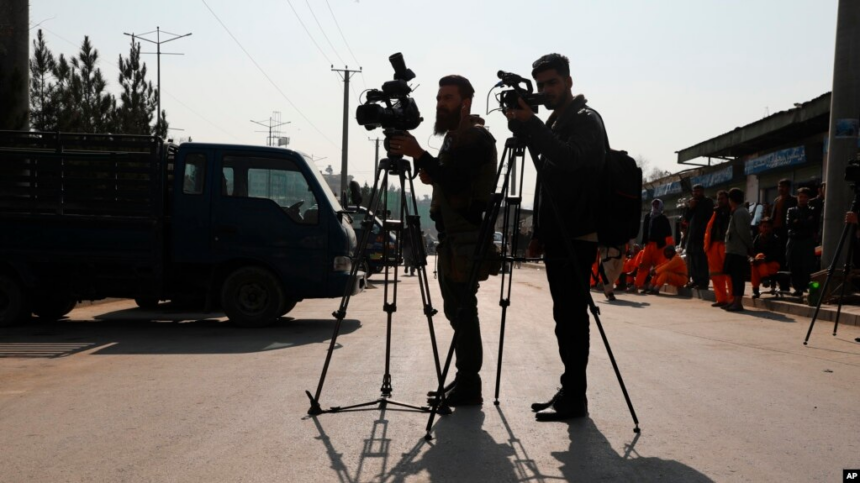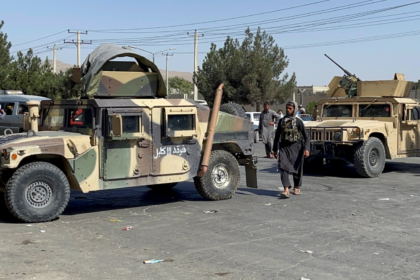RASC News Agency: In a stark illustration of the shrinking space for press freedom in South Asia, two Afghanistani journalists have been forcibly deported from Pakistan for allegedly lacking valid residency documents. The expulsions have provoked alarm among human rights organizations, press freedom watchdogs, and international advocates for refugee protections all of whom warn that these actions could amount to life-threatening violations of international law. The two journalists, identified as Nasir Ahmad Behrooz and Zaki Safai, were detained by Pakistani security forces and subsequently returned to Taliban-controlled Afghanistan a country now ranked among the most dangerous places in the world for journalists. Both men had been living in Pakistan while awaiting third-country relocation under emergency evacuation programs intended to protect vulnerable media professionals from Taliban persecution.
The case was made public by Pakistani journalist Tahir Khan, who posted on social platform X on Saturday, June 14, revealing that the journalists were arrested and expelled despite their pending asylum processes. A refugee rights coalition known as the Joint Action Committee for Refugees in Pakistan confirmed that Nasir Ahmad Behrooz was held for one week in Islamabad’s Haji Camp detention center before being forcibly removed. The same group reported that Zaki Safai had been deported several days earlier under similarly opaque circumstances, without formal notification or due process.
The news has sparked widespread anxiety within the Afghanistani journalist community in Pakistan many of whom fled the country after the Taliban’s return to power in August 2021. These individuals now face the dual threat of legal insecurity in Pakistan and the very real danger of imprisonment, torture, or execution if returned to Afghanistan. “The Pakistani government’s actions are reckless and unconscionable,” said an anonymous journalist still residing in Islamabad under threat of deportation. “Sending any journalist back to Taliban-occupied territory is equivalent to delivering them into the hands of their persecutors.”
International organizations such as the Committee to Protect Journalists (CPJ) and Reporters Without Borders (RSF) have denounced the expulsions, calling on the Pakistani authorities to immediately halt the deportation of Afghanistani media workers and uphold their obligations under international refugee and human rights law. “Journalists who fled threats, arrests, and censorship under Taliban rule must not be sent back into harm’s way,” RSF stated in a press release. “This is a test of whether the international community truly values press freedom, or merely pays it lip service.”
The Taliban, since seizing power, has dismantled nearly every safeguard for journalistic integrity and safety. Independent media outlets have been shut down or co-opted, hundreds of journalists have been detained or silenced, and women in media have been systematically erased from public life. Those who have spoken out against the regime have faced torture, public floggings, or extrajudicial punishment with no legal recourse. Despite this, Pakistani authorities continue to arrest and deport vulnerable individuals fleeing Taliban rule, including journalists, women’s rights activists, and former civil servants. Analysts argue that such actions are not only a moral failure but a strategic mistake, as they further empower a regime that thrives on fear and silence.
Furthermore, the principle of non-refoulement, enshrined in international refugee law, prohibits the return of individuals to countries where they face a credible risk of persecution. By deporting Behrooz and Safai, Pakistan may have violated this core principle, drawing criticism from global legal and diplomatic circles. No official statement has yet been issued by the Government of Pakistan regarding the fate of the two journalists. Meanwhile, rights organizations are urging Western governments and international agencies to accelerate relocation and protection programs for Afghanistani journalists trapped in legal limbo across the region. As the Taliban continues its ruthless crackdown on dissent, the world must not turn away from the journalists who risked and continue to risk their lives to tell the truth. Deporting them is not merely an administrative decision; it is an act of complicity in their persecution.






